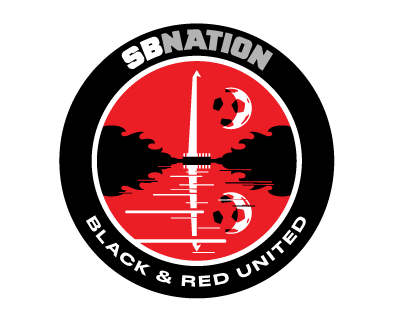D.C. United’s midseason transition from a struggling team that couldn’t score to one that scored two or more goals in thirteen of their final fourteen games had a lot to do with a series of midseason trades. Patrick Mullins immediately became the team’s top goal threat, while Lloyd Sam put up 3 goals and 6 assists in just 13 appearances. The other player picked up in that wave, Kennedy Igboananike, did not share in their success.
Igboananike came to MLS after some success in the Swedish league, but even if he had replicated those returns for the Chicago Fire, his salary - $800,000 base, $901,666.67 guaranteed - would have been a debacle. The Fire put out the kind of money you’d associate with a Golden Boot contender and got a solid attacking piece instead. It was no real surprise that they were willing to move him on, even while paying most of his 2016 cap hit, and United ended up shelling out some targeted allocation money and their natural 2019 3rd round pick to acquire the Nigerian.
Unfortunately, it appears that United also ended up overpaying. Igboananike’s combination of speed, strength, size, and his ability to play up front or out wide seemed like a good fit on paper, but he struggled to really make much of an impact on the Black-and-Red. Ben Olsen found himself opting to avoid resting Mullins or using Alvaro Saborio rather than using Igboananike up front, and Lamar Neagle rose to the challenge of increased competition to become the go-to first sub off the bench on the wings.
In the end, Igboananike only made seven appearances for United, including two starts. Five of those appearances came within the first six games of his arrival. Once United broke out as a team, Igboananike went six straight games without playing a single minute. He did appear in the last two games of the regular season, but those appearances involved a five-minute cameo and a start in Orlando when Olsen opted to rest as many starters as he possibly could.
Digging deeper, Igboananike’s numbers per 90 only improved to a very modest degree despite playing for a stronger team. He took about one more shot in his 236 minutes with United than his totals with Chicago would have indicated, and his one goal and zero assists were in line with what he did during the first half of the season as a full-time starter for the Fire. In terms of key passes per 90 minutes played, Igboananike averaged 0.4, or fewer than a player like Luke Mishu. For an attacking player joining a team with Acosta, Mullins, Sam, Nyarko, and Neagle, that’s...oof.
The Washington Post’s Steve Goff already reported that Igboananike’s departure is a strong probability to to the size of the pay cut he’d have to accept to stay in the District. And even though United appears sure to enter 2017 with Mullins and Alhaji Kamara as their only out-and-out strikers, I doubt too many of you will be having to think very hard about this one.
